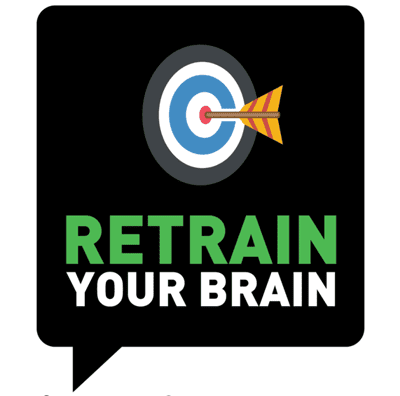Modern life is burning us out: Four ways to boost focus
January 29, 2025

Shocking fact: It can take up to 23 minutes to regain our focus when we get distracted. In this article we show you 4 steps to limit distractions — and quickly get your mind back on track.
Have you ever found yourself:
- Jumping over to social media?
- Feeling guilty for wasting time but unable to break the cycle?
- Struggling to complete even the most straightforward tasks?
You’re not alone. Scientists say our brains are simply not wired to handle all the information we’re expected to process in modern life. This is why so many of us feel burned out — and one of the reasons our new national NAEP student test scores are shockingly low.
- Educators and administrators are distracted daily by workload, stress, professional demands, politics, parent involvement, and other societal factors.
- Teenagers and kids get distracted by phones, social media, video games, streaming services, peer pressure, lack of sleep, family conflicts and more.
Some of our distractions come from outside influences.
But the truth is, self-distraction is just as common.

Stefan Barbas, Mental Health Occupational Therapist and founder of Advanced OT shares the The Shocking Impact of Self-Distraction:
- Lack of focus and productivity
- Mental health and overall well-being
- Increased stress and anxiety
- Delayed problem-solving
- Poor sleep
- Impaired decision-making
- Decreased cognitive function
Results from Our Nation’s Report Card:
As evidenced by the recent National Assessment of Educational Progress (NAEP) results, this article shares the internal and external distractions that have significantly contributed to the decline in student reading scores. The widening gap between high-achieving students and their struggling peers suggests that less focused learners are losing ground.
Many lower-performing students are unable to fully engage with the text, struggling to identify key information they read, which limits their ability to improve academically. The inability to concentrate on essential learning is exacerbated by factors like technology distractions and social disruptions.
Each time we check our phone or get lost in a social media rabbit hole, we’re satisfying our craving for instant gratification. It doesn’t have to be this way. Here’s some guidance on how to regain control of your focus and productivity.
How to Take Back Control of Your Focus
1) Embrace Monotasking
One task, one focus. Complete a single task before moving on to the next. Group tasks into similar areas–for example, do your creative work in a different session than your emails or administrative tasks. Whenever possible, avoid jumping between them.
2) Create a Focus-Friendly Environment
-
-
Put your phone in another room: Out of sight, out of mind.
-
Dedicate a specific workspace: No more working from the couch or bed.
-
Tidy your workspace: A clean workspace leads to a clear mind.
-
Implement scheduled focus blocks: Time blocks for uninterrupted work.
-
3) Break Tasks Into Clear, Manageable Steps
This means breaking your task into very small, specific steps. Create a clear to-do list. This way, tasks become much less overwhelming. Enjoy the endorphin rush as you cross out completed tasks one by one!
4) Implement a Recovery System
It is inevitable that you will slip up. Here’s how to reset:
-
- Step 1: Accept the slip. Resisting the urge to distract yourself only amplifies the problem.
- Step 2: Clear your mind. List all pending tasks and pick one to focus on. Start with just 5 minutes.
- Step 3: Reset your environment. Eliminate distractions-put your phone away, tidy your workspace, and take a deep breath.
Yes, you can Retrain Your Brain
Though our brains aren’t designed to process all the distractions of modern life, you can reverse the cycle of self-distraction. The good news: you really can train your brain to stay focused.
 Start by adopting the 4 strategies:
Start by adopting the 4 strategies:
-
- Monotask. Focus on one task at a time.
- Design your environment. Eliminate distractions wherever possible.
- Clarify tasks. Break them into specific steps.
- Recover quickly. Accept slips, reset, and move forward.
Remember to start small, be patient, and you’ll be amazed at how much progress you can make.
For more information on how to take control of your time, check out Mel Robbins, American author, podcast host, and motivational speaker, and her podcast episode The Real Reason You’re Exhausted: How to Gain Control of Your Time & Your Life.
Author: Kim Celotto for Respectful Ways
 Respectful Ways offers trauma-informed character education and social-emotional learning curriculum for four age groups: PreK-2, 3-5, 6-8 and 9-12. Students engage and grow with interactive, online courses covering compassion, perseverance, respect and responsibility.
Respectful Ways offers trauma-informed character education and social-emotional learning curriculum for four age groups: PreK-2, 3-5, 6-8 and 9-12. Students engage and grow with interactive, online courses covering compassion, perseverance, respect and responsibility.
This entry was posted in SEL News. Bookmark the permalink.


 Our 1st graders loved the Be Kind: It Feels Good course. The Kindness Hunt and bucket filling activities were the best. Very engaging.
Our 1st graders loved the Be Kind: It Feels Good course. The Kindness Hunt and bucket filling activities were the best. Very engaging. The Bored, Get Creative module was perfect for our 4th graders pre-winter break. We talked about things they could do if “bored”.
The Bored, Get Creative module was perfect for our 4th graders pre-winter break. We talked about things they could do if “bored”.